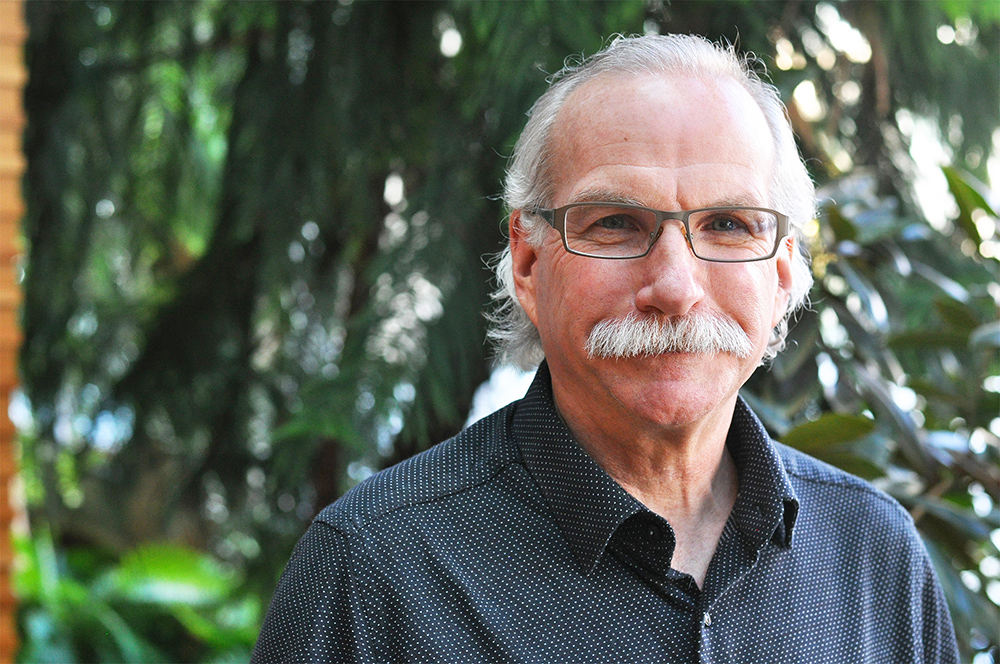Gregg Mitman
ABOUT

Gregg Mitman is the Vilas Research and William Coleman Professor of History, Medical History, and Environmental Studies at the University of Wisconsin–Madison and Guest Research Professor at LMU’s Rachel Carson Center for Environment and Society in Munich. He is an award-winning author, filmmaker, and teacher, whose interests span the history of science, medicine, and the environment in the United States and the world and include a commitment to environmental and social justice.
Over the last decade, Mitman has focused on a multimedia project—films, a book, and public history website—exploring the history and legacy of the Firestone Plantations Company in Liberia. He coproduced and codirected with Sarita Siegel two films, In the Shadow of Ebola, an intimate portrait of the Ebola outbreak in Liberia, and The Land Beneath Our Feet, a documentary on history, memory, and land rights in Liberia. His most recent book, Empire of Rubber: Firestone’s Scramble for Land and Power in Liberia, was published by The New Press in November 2021. A sweeping story of of capitalism, racial exploitation, environmental devastation, and resistance, Empire of Rubber was named One of the Best Books of the Fall by Bloomberg and was praised by Publishers Weekly in a starred review as a “harrowing and richly detailed account of U.S. tire manufacturer Firestone’s exploitation of Liberian workers in the 20th century.”
Mitman’s current research, Fragments of the Forest, for which he has received a €2.5 million European Research Council Advanced Grant, aims to discern the ecological, economic, political, and social forces at play that have turned fragments of the Upper Guinean rainforest in Liberia and Guinea into “hotspots” where biodiversity conservation concerns, emerging infectious disease threats, and resource extraction interests converge.
Mitman has been the recipient of fellowships from the Alexander von Humboldt Foundation, the American Council of Learned Societies, Carnegie Corporation of New York, the John S. Guggenheim Memorial Foundation, and the National Humanities Center, among others. He has been a guest on NPR’s Weekend Edition and Science Friday and his public writing has appeared in the Boston Globe, Denver Post, Huffington Post, Milwaukee Journal Sentinel, New England Journal of Medicine, Orion Magazine, Slate, and Washington Post. A past president of the American Society for Environmental History, he is also the founding director of the Nelson Institute’s Center for Culture, History and Environment (CHE).
AFFILIATIONS
University of Wisconsin-Madison
Center for Culture, History, and Environment
Department of Medical History and Bioethics
Holtz Center for Science and Technology Studies
Nelson Institute for Environmental Studies
Ludwig Maximilian University
INTERVIEWS
PODCAST
PODCAST
WEBINAR
PODCAST
WEBINAR
PODCAST
PODCAST
WEBINAR
PODCAST
WEB
PODCAST
RADIO
RADIO
RADIO
RADIO
RADIO
RADIO
RADIO

Gregg Mitman is the Vilas Research and William Coleman Professor of History, Medical History, and Environmental Studies at the University of Wisconsin–Madison and Guest Research Professor at LMU’s Rachel Carson Center for Environment and Society in Munich. He is an award-winning author, filmmaker, and teacher, whose interests span the history of science, medicine, and the environment in the United States and the world and include a commitment to environmental and social justice.
Over the last decade, Mitman has focused on a multimedia project—films, a book, and public history website—exploring the history and legacy of the Firestone Plantations Company in Liberia. He coproduced and codirected with Sarita Siegel two films, In the Shadow of Ebola, an intimate portrait of the Ebola outbreak in Liberia, and The Land Beneath Our Feet, a documentary on history, memory, and land rights in Liberia. His most recent book, Empire of Rubber: Firestone’s Scramble for Land and Power in Liberia, was published by The New Press in November 2021. A sweeping story of of capitalism, racial exploitation, environmental devastation, and resistance, Empire of Rubber was named One of the Best Books of the Fall by Bloomberg and was praised by Publishers Weekly in a starred review as a “harrowing and richly detailed account of U.S. tire manufacturer Firestone’s exploitation of Liberian workers in the 20th century.”
Mitman’s current research, Fragments of the Forest, for which he has received a €2.5 million European Research Council Advanced Grant, aims to discern the ecological, economic, political, and social forces at play that have turned fragments of the Upper Guinean rainforest in Liberia and Guinea into “hotspots” where biodiversity conservation concerns, emerging infectious disease threats, and resource extraction interests converge.
Mitman has been the recipient of fellowships from the Alexander von Humboldt Foundation, the American Council of Learned Societies, Carnegie Corporation of New York, the John S. Guggenheim Memorial Foundation, and the National Humanities Center, among others. He has been a guest on NPR’s Weekend Edition and Science Friday and his public writing has appeared in the Boston Globe, Denver Post, Huffington Post, Milwaukee Journal Sentinel, New England Journal of Medicine, Orion Magazine, Slate, and Washington Post. A past president of the American Society for Environmental History, he is also the founding director of the Nelson Institute’s Center for Culture, History and Environment (CHE).
AFFILIATIONS
University of Wisconsin-Madison
Center for Culture, History, and Environment
Department of Medical History and Bioethics
Holtz Center for Science and Technology Studies
Nelson Institute for Environmental Studies
Ludwig Maximilian University
INTERVIEWS
PODCAST
PODCAST
WEBINAR
PODCAST
WEBINAR
PODCAST
PODCAST
WEBINAR
PODCAST
WEB
PODCAST
RADIO
RADIO
RADIO
RADIO
RADIO
RADIO
RADIO
© 2019 Gregg Mitman

